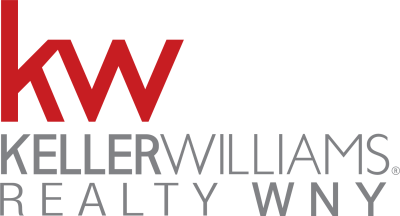Lately, I’ve been thinking about this life hack. I started running this scenario in my head, because my son is a sophomore in college and my brother is a recent college grad.
Did you know that when you graduate from college and accept a job, it’s the only time you don’t have to show 2 years of work history on a mortgage application?
The bank will accept your college transcript as your work history, and your salary as your income history.
SO (stick with me on this)...
What if my brother had a side job in college, saved his college graduation money, borrowed a little from his parents, whatever it takes. And could come up with enough money for a small down payment. I’m talking like $8,750. In the meantime, he called his sister, said “I scraped together $8,750", and his sister answered, “I know exactly what do with it. How would you like to turn $8,750 int $71,250 in 4 years, move out of your parents house, and live for free?”
Sounds too good to be true, doesn’t it? Well, it’s not, and here’s how: I have this listing coming up in Black Rock. It’s not beautiful, but it’s functional. It’s good enough. Also, keep in mind I’ve been to my brother’s college house in Fredonia, so I know what conditions he’s willing to live under. Here’s the data of this particular house: 4 units, listed at $215,000. Current market rent for the area is $750 (minimum) for 2 bedroom units. Current market conditions indicate that we are still in a seller’s market with inventory statistics falling by the day.
There is a good chance the this property will receive multiple offers and I can’t forecast the exact amount, but I will use a hefty sale price of $250,000 because, well frankly, the numbers work so why not.
My brother purchases the house using an FHA loan, which only requires 3.5% down ($8,750). FHA loans also allow for 6% in seller’s concessions, which he also gets ($15,000). He uses the entire $15,000 for closing costs and doesn’t need to come out of pocket for anything other than the down payment.
Side note: it’s important to mention that in this scenario we are asking the seller to give back $15,000, which means the seller is really selling the property for $235,000. Still $20,000 over asking price.
I’m going to estimate here using: 6.25% interest rate (today’s rate on FHA). On this house, the taxes are really cheap and I believe the homeowners insurance will be a little more so I will estimate those to be about $1500 each. This calculates to a monthly payment of $1933
(PITI=principle, interest, taxes, insurance)
So my brother is going to rent out 3 apartments and then live in one with a roommate. This means every month my brother collects $2625 in rent and pays the bank $1933 (remember this includes his insurance and taxes).
There is a good chance the this property will receive multiple offers and I can’t forecast the exact amount, but I will use a hefty sale price of $250,000 because, well frankly, the numbers work so why not.
My brother purchases the house using an FHA loan, which only requires 3.5% down ($8,750). FHA loans also allow for 6% in seller’s concessions, which he also gets ($15,000). He uses the entire $15,000 for closing costs and doesn’t need to come out of pocket for anything other than the down payment.
Every month he has a surplus of $692. Of course, I’m going to recommend to him that he pay that surplus to the bank, paying his principal balance down. I’ll remind you, he is living for FREE so any repairs that come up and improvements that he wants to make, he can afford. And he’s going to live there for 4 years. 4 whole years! After 2 years, he’s actually going to start paying his share into the principle. He no longer lives for free, it costs him a whopping $375 to live there. But also, he has learned how to save by this point and he makes a little more money every year so he can definitely afford it. When he does this, the surplus becomes $1,065 per month. And the principle really starts to chunk away.
Before you know it, 4 years have passed. Overtime, he’s had to keep up with the maintenance and has made repairs as needed. Maybe he has replaced a few windows, a furnace or 2. Who knows, there is always work with home ownership. All and all, he’s put about $10,000 into his 4 unit over the past 4 years.
That’s ok because his total living expenses over the past 4 years have only been $9,000. Finally he calls his sister and says “Jen, I want to make a change. What are my options? What is this place worth?”
I’m going to use a safe 3% appreciation to estimate the value for that home in 4 years. If trends cool off and the historical balance becomes a realty, this should be safe. In 4 years, that house will be worth about $281,000. And my brother’s balance on his principle will be approximately $191,000 (because he was smart and paid that surplus to the bank every month). That’s how we could take $8,750 and turn it into $71,250 in 4 years. His total investment gain is $71,250! That’s a rate of return (ROI) from his investment ($8,750 + $10,000) of 380% and an annualized rate of 48.16% per year. Ka-ching!
Are you subscribed to our quarterly newsletter? Each quarter we have a new article about what real estate can do for you. Call or email me to get on the list! [email protected] 716-316-6664




